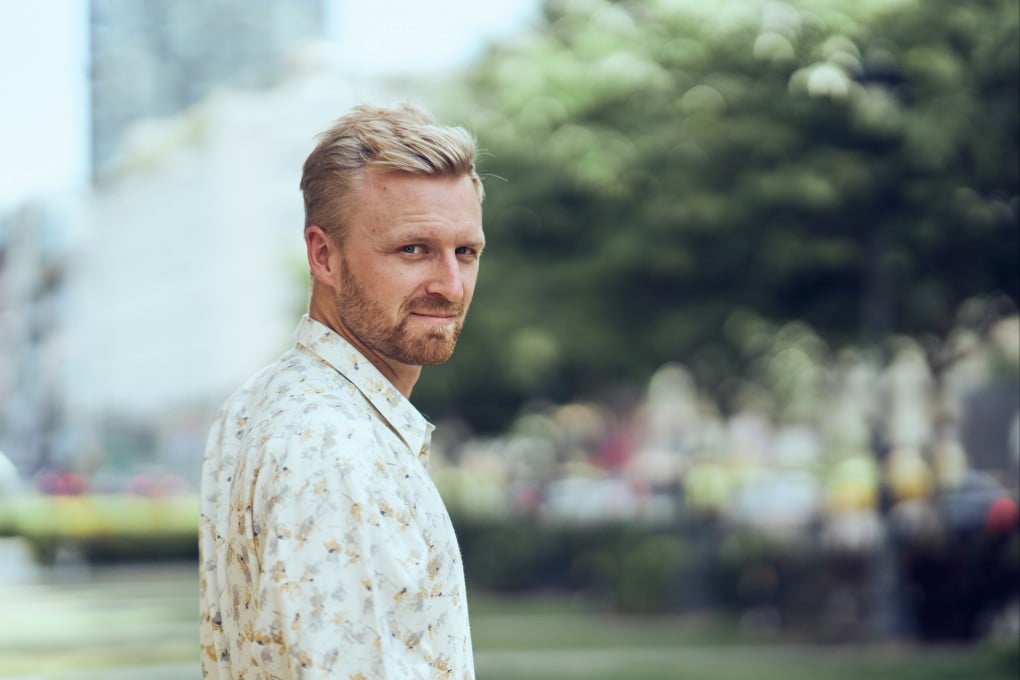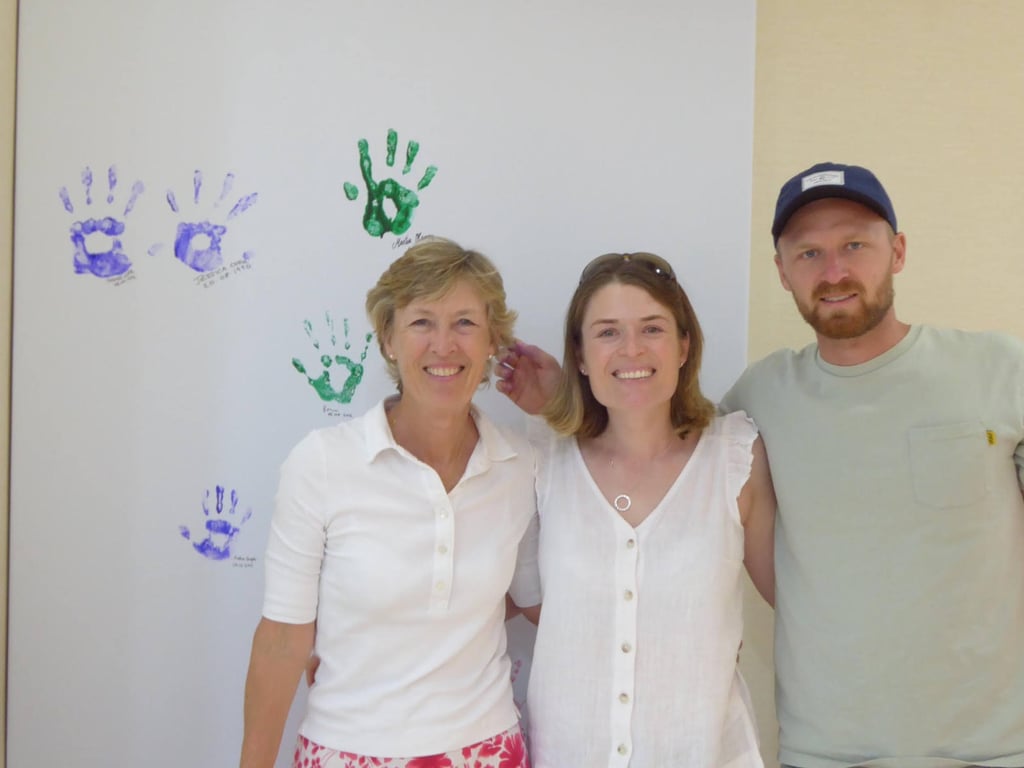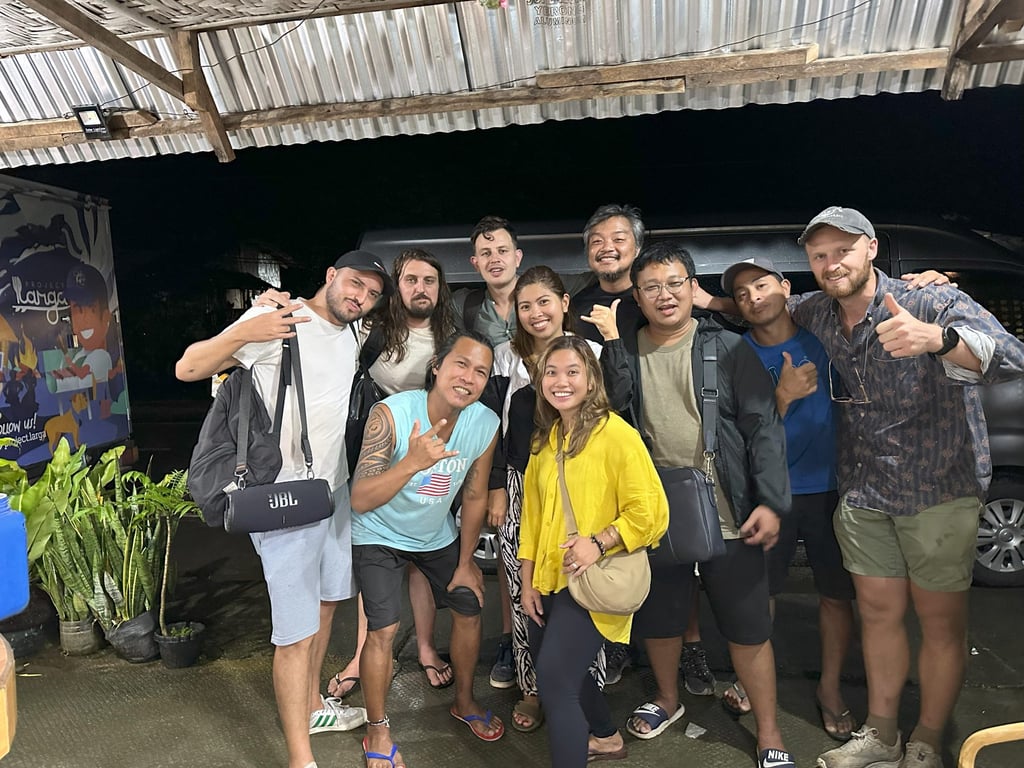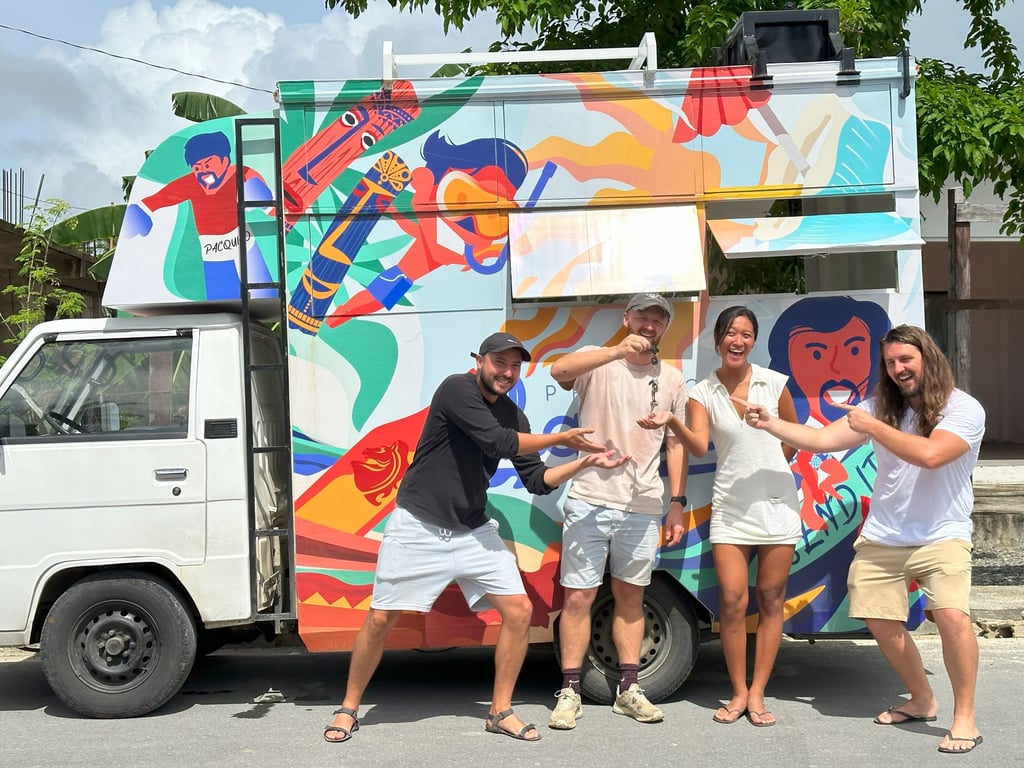Filmmaker Thomas Over’s transnational life in Kuala Lumpur, Durham and Manila – and driving a food truck across the Philippines
- The Hong Kong-born property agent turned filmmaker tells how he came to drive a food truck 1,000km across the Philippines, cooking free meals for strangers, as a way of righting inequality wrongs

My dad’s side of the family is in the shipping industry. My grandfather was an engineer in the navy and my father got on a bulk carrier when he was 18 and went around the world. He moved to Hong Kong when he was 24 and built a career out of bulk carrier shipping. I was born in Hong Kong in 1992 and have an older sister and a younger brother. A couple of months ago my sister and I went back to the Matilda Hospital, where we were born, and put our handprints on the Matilda babies’ handprint board.

School daze
When I was four, my dad’s job moved us to Kuala Lumpur, Malaysia, for a couple of years. I went to the Alice Smith School. It was the time of bomb scares in KL and I remember sitting outside in the sun while they searched the school. When I was six, we moved to the UK. My parents found out that I was heavily dyslexic. So, aged eight, I started as a boarder at Horris Hill, in Newbury, Berkshire. The school was set up to give more support to students who were struggling a bit and needed extra time.
Growing up fast
I was split up from my brother who is bright and not dyslexic, and he went to day school closer to the family home. Boarding school was an uncomfortable and challenging experience, and I had to grow up pretty fast. It was amazing in terms of independence and running around the forests and having a massive campus in the middle of Berkshire, but it was difficult leaving the family at that age. I just had to get on with it. It was ultra-disciplined and quite militaristic. There wasn’t much down time – you were always doing something and trained to do things by yourself.
The Talented Dr Schofield
I always thought I was fairly stupid because I was struggling to learn basic things like times tables. I was just slow at learning. I was pretty much at the bottom of all my sets. I went to another boys’ boarding school for secondary school, Radley College, just outside Oxford. When I was 13, I had a fantastic teacher, Dr Schofield. He had pictures of famous dyslexics on the wall like Albert Einstein, Benjamin Zephaniah and Richard Branson. There were five dyslexics and five people with dyspraxia in the class. We all thought we were just slow and not very clever.
Dr Schofield drilled us incredibly hard and eight out of 10 of us ended up at Oxbridge. As soon as I found out what I was good at I excelled. In the last years of school, I was in the top sets of all my subjects. I started to look at the world differently. I had a desire to be different and to be seen as different – I think that’s a requirement of my personality. Conforming to the typical answer in the textbook is something I struggle with.
Welcome weirdos
I went to Durham University to study physical geography. I scraped through with a 2:1, being very social, playing a lot of sport and getting a massive friendship circle. My personality blossomed there. I became much more confident, I didn’t focus on the academics. I’ve tried to increase the bounds of what is perceived day to day or moment to moment. That seems to be a strong driving force for me, which is connected to some sort of dyslexic point of view, and then my upbringing with all the expats and different perspectives and people. I’ve always had weird, interesting, different friends and I struggle with people who are straight down the line and vanilla, and products of their own environment. I can’t connect with those types of people, but someone who can bring me a fresh perspective is something I gravitate towards.
Property lad
When I graduated, in 2014, I didn’t know what I wanted to do. I tried advertising and then fell into real estate. In 2015, I did a master’s in London in real estate and got onto the graduate scheme of a global real estate company. I stayed on after the scheme and have been working there 10 years now. I advise people who own commercial real estate, valuing and buying and selling those assets. I got amazing experience in London, but they weren’t my type of people. I needed to be around more expat-type of people.

Our man in Manila
I was offered a position at the office in Manila and got a flat share with a British guy called Ed and an Australian-Ecuadorian called Mat. They had started a production house together and were making short videos for brands. I was wearing a suit and doing the corporate thing and coming back to the flat where they were shooting in our living room to reduce costs. When I moved in, they were filming an ad for Angkas, a motorbike-taxi ride-hailing company. It was about a girl who had the spirit of traffic in her and was exorcised by the Angkas app. It was exciting and fun, and I immersed myself in the world of creating videos. Later, they worked on a travel show called Lost in the Philippines.
Bridging the gap
We watched Chef, directed by Jon Favreau, a film about a chef who gets a bad review and loses his restaurant, and his friend gives him a food truck. We thought it was pretty cool and began thinking about doing something similar in the Philippines. I was aware that as an expat I was very lucky and privileged over my local colleagues. Once I understood why that is, it gave me a slight burden. Perhaps if I’d been in Hong Kong or Singapore, I wouldn’t have been burdened by it, but in the Philippines, you are confronted with massive inequality. We wanted to mesh the two ideas of giving back and going on an adventure.
Food for thought
We began sketching out a plan – we didn’t want to have any partnerships and didn’t want to take money from anyone. We knew that Filipinos love food, so we lined up a food truck with the idea of turning up at a place, buying food from the local market, seeing who was around to cook for and seeing where the experience went.
Hitting the road
When Covid hit, in 2020, we were locked down in the flat for nine months with our girlfriends. We had a white board and spent a lot of time planning. Then everyone started going their different ways. In 2021, I moved to Ho Chi Minh City, Vietnam, for work, but I still wanted to do the trip.
We spent six months planning it. It finally happened in February 2023. We bought a 30-year-old food truck and drove it 1,000km and on four ferries across the Philippines.
Spirit of the Philippines
We made a documentary of the trip – Manila to Siargao Island: Driving a Free Food Truck across the Philippines. Mat was the head chef, Ed was the production guy and I was in charge of logistics and mapping the route. It was the most meaningful travel I’ve ever done. Most travel videos are about going to famous places that look good on camera. In the Philippines the focus is on the beaches or the surfing or Boracay. We thought that was fundamentally fake – like saying, “My life is better than yours.” We wanted to showcase the other side of the Philippines, which is incredibly poor and raw. There are communists in the forests. It is quite a cowboy place in some ways. We wanted to show the spirit of the Philippines and its people and how caring and hospitable they are. After the trip, we donated the truck to Lokal Lab, a charity in Siargao. It is being used by local fishermen down the coast, they love it.

Going local
